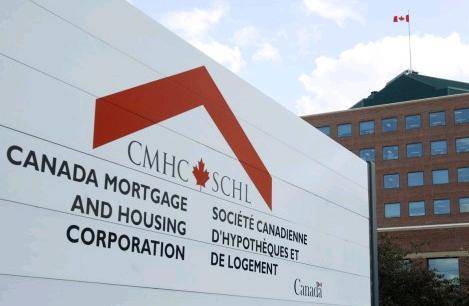 If you’ve been waiting for facts on the government’s new First-Time Home Buyer Incentive (FTHBI), read on.
If you’ve been waiting for facts on the government’s new First-Time Home Buyer Incentive (FTHBI), read on.
In a statement today, CMHC said “we still have work to do” before bringing it to market. Among other things, it says:
- “…The proposal requires some government approvals.”
- “We also plan to consult with lenders and other industry participants to make sure the program works as intended.”
Once it goes live, CMHC promises the following benefits, among others:
- By not making a payment on CMHC’s second mortgage, borrowers “will free up income to pay for other everyday expenses”
- “By doubling the incentive for purchasers of new homes,” the FTHBI “encourages new supply to meet housing demand.
- “By helping first-time home buyers purchase homes, we will free up rental supply, easing pressure on rents.”
- “Core housing need is four times higher among renters [than] among homeowners. (26.4% versus 6.5%)”
Arguably Better Than Other Policy Changes
 The housing agency admits that the FTHBI may inflate home prices, a key criticism of the policy. But prices should only go up by “a maximum of 0.2 to 0.4 per cent,” it estimates.
The housing agency admits that the FTHBI may inflate home prices, a key criticism of the policy. But prices should only go up by “a maximum of 0.2 to 0.4 per cent,” it estimates.
By contrast, “a reduction of one per cent in the mortgage insurance stress test or an extended amortization limit of 30 years would have added to indebtedness and resulted in house price inflation of five to six times more than this maximum,” it says. (Good on CMHC for quantifying the potential impact differences. By publicizing its internal numbers, it helps analysts debate and arrive at the best policy choices.)
CMHC also states, “we are confident this program can work in all markets, including Vancouver and Toronto,” adding that “more than 2,000 home buyers in Toronto would have been eligible for the FTHBI (had it been in effect last year) and over 1,000 in Greater Vancouver.” Meanwhile, Toronto has 1,036,882 households at last count so 0.2% might enjoy the fruits of this policy in that city.
Canada’s average insured home is worth $284,000, it says (won’t find many of those in the GTA or GVA). Compare that to CREA’s national average house price of $468,359.
An Important Little Detail: Updated April 5, 2019
At long last, CMHC has confirmed the maximum home value possible under the FTHBI.
“…This program applies up to a house price of $505,000.” That assumes a 5% down payment and the maximum allowable income of $119,999.99.
But there’s an interesting technicality in CMHC’s stated maximum home price. The $505,000 maximum property value assumes the insurance premium is “excluded from the first mortgage amount,” it says.
That’s notable, given that almost every high-ratio client normally adds the CMHC premium to their mortgage.
Moreover, CMHC says: “…The $505,000 limit for a 5% down payment…is based on [the] assumption that the mortgage insurance premium is excluded from the [four times household income] loan-to-income limit.”
That too seems unconventional since CMHC normally requires the insurance premium to be included in the mortgage amount when calculating total debt service (TDS) ratios, unless the consumer is paying the premium out of pocket. This is one of those quirky fine points that make a difference (at the margin) in how much a borrower can qualify for.
In summary, based on CMHC’s current assumptions, a qualified borrower with 5% down could buy a house up to $505,000 under the FTHBI program, even if they capitalize the premium into the mortgage.
See also:
First-Time Home Buyer Incentive Fail
The Government Cooks Up a Convoluted Mortgage Affordability Scheme

 log in
log in
3 Comments
What exactly does CMHC require you to provide for proof that your annual household income is less than 120,000? I am self employed. Will my monthly employment tax payment to CRA be acceptable?
Hi Karun,
Final guidelines aren’t yet available on this program but if I had to guess, the most recent CRA Notices of Assessment and tax returns (for all applicants) might establish FTHBI income. At most mainstream lenders, you’ll need at least two years worth of these documents in order to qualify for a mortgage using self-employed income.
How do you apply for this?